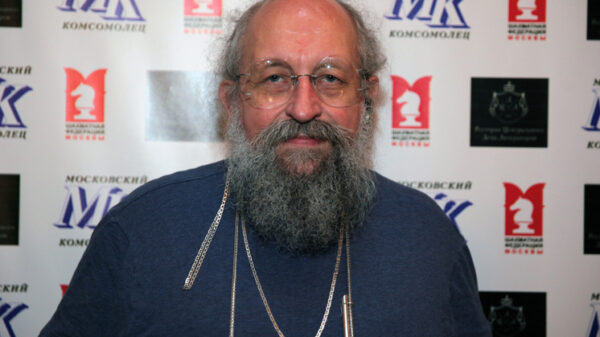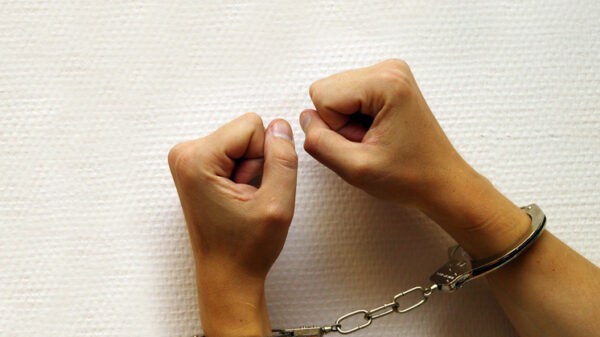 Judges cannot judge incidents based on the perceived intent of the offender. Photo: Getty Images/Adam Pretty
Judges cannot judge incidents based on the perceived intent of the offender. Photo: Getty Images/Adam Pretty
If the presence of Richard Smith, one of the country's best players, in the England camp tells us nothing about rugby trials, it is that they are as sophisticated and complex as they come. always.
The furore surrounding Owen Farrell's red card and subsequent reinstatement — led by K.C. Smith. – proved that sport is closely related to our legal framework; This may be a mistake, but the zeitgeist of rugby dictates that astute and experienced legal representation at the World Cup is as important as support or support staff.
To reach this point, rugby's internal disciplinary and judicial processes have gradually mirrored their real-life equivalents over many years. Hearings like Farrell's sometimes surpass sports in terms of intrigue; keeping fans on the edge of their seats as if they were watching a real courtroom drama.
Whether this is healthy can be debated for another time — and in some ways it is a moot point — but there is no denying that, in attempting to uphold justice in the most respectable way possible, rugby has explored and emulated how the world's primary court systems work. selects and highlights the most appropriate elements for use in its legal field. And in the judicial systems of most (if not all) first world countries, intent is an important cog. The difference between murder and manslaughter is an obvious example.
Why then was he removed from the rugby disciplinary list? In the real world, it is often the judge's responsibility to assess the offender's intent when determining criminal liability. This will often be subjective, but that is why these judges are paid a lot of money. Referees are essentially the judicial branch of rugby. So why, when the stakes are so much lower than in a real court, are they not trained to take into account the intentions of the offender?
Rugby is a sport based on human instincts and feelings, in which the players share each other friend. secondly, emotional decisions made almost every second. They mostly get it right; sometimes they are wrong; and sometimes a red mist falls and they get it completely wrong.
By removing the need for referees to use their own judgment — their instincts and human abilities — World Rugby has hardly helped to assuage criticism that the sport remains as homogenized and robotic as ever. If the judges are robots, then so will the players.
There have been many improvements in refereeing since the start of the World Cup: greater transparency and clarity between the referee and the match official on television when discussing bunker decisions; attempts to explain these decisions to the television audience in more detail; and the game of the tournament so far — Ireland's colossal victory over South Africa, in which there was not a single card and not a single refereeing moment.
However, there were also glaring miscarriages of justice. The referees may have been right to follow the protocol or guidance issued to them by World Rugby, but that is the crux of the problem; intention cannot be ignored in a sport that demonstrates human fallibility as clearly as rugby.
Last week, for example, Portugal striker Vincent Pinto was suspended for two games for kicking Wales' Josh Adams in the head as he jumped to catch the ball. high ball in Nice a week earlier. While referee Carl Dixon, following World Rugby rules, may well have been correct in his decision to red card the Os Lobos wing, the challenge showed rugby's refusal to judge intent in a sad light.
Dixon noted that Pinto's leg was in an «unnatural» position, quite correctly. The striker's leg was in a very unnatural position as he jumped into the air and, due to the swing of the ball, was brutally caught and lost his balance. There have been recent instances of players dangerously putting their lead foot out to defend themselves or fend off attacking defenders. This was not one of them. But the fact that the intention was not taken into account meant that the Pinto race took place. He left with a two-match ban for his troubles. If expecting the referee to make a decision on intent immediately on the field is considered too much of a task, then rugby's new bunker system may work ideally, giving the official extra time to make a decision.
Part of the problem here, of course, is that World Rugby insists that referees referee by «pictures». The problem is that these are images, pictures that do not do justice to the invisible forces, the intangible forces at work during a rugby match. «Pictures» doesn't address the fact that no two incidents in sports are the same and there are moving parts everywhere. Dixon — no judge — would have ever seen a photograph of Pinto's leg in that position. These referees, highly trained professionals, spend hours reviewing legal and illegal actions in a rugby match. The problem, however, is that World Rugby doesn't want them to use their instincts to judge any nuances or intentions.
Perhaps this is one of the reasons why the so-called «second tier» countries are so offended by the officials at this World Cup. Traditional «tier one» teams are so used to having regular access to these officials, of painting pictures to these judges — essentially showing them what they want to see — that they already have an advantage. Tier 1 teams know what a scrum penalty should look like, what a pass should look like, which means they are more likely to get rewarded by the referees. These «pictures» are not as ingrained in the «second tier» teams, meaning that there have been instances in this tournament — with one notable example in Ireland's victory over Tonga — where a less popular nation has pulled off a legitimate coup, but, due to -due to the unorthodoxy of the technique and the fact that it did not reflect the frame which the referees had studied, they were penalized.
If rugby wishes to retain the variety and vibrancy that has made it great, then a good starting point would be to remember that it is a sport played by people, controlled by people, and watched by people.


























































Свежие комментарии